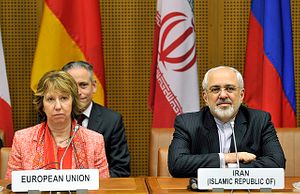On the evening of Monday, August 15, 2014, an Iranian national named Parviz Khaki suffered a massive heart attack while in his Manila prison cell and died shortly thereafter. Khaki, a trader and international businessman, was in detention for alleged export control violations: In May 2012, he was indicted by a U.S. court for allegedly supplying dual-use goods to Iran’s nuclear program, and was quickly arrested by Filipino authorities. For more than two years thereafter, Khaki had been in detention while Iran’s embassy in Manila fought American attempts to extradite him to the U.S.
Barely six months after Khaki’s arrest, Filipino authorities detained another foreigner suspected of involvement in supplying Iran’s illicit programs: a thirty-year-old Austrian national, Daniel Frosch, who U.S. authorities had reportedly sought since 2005 for his alleged involvement in selling missile parts to Iran. Unlike Khaki, though, Frosch did not languish in jail. Frosch’s passport had expired and he was immediately extradited to Austria, where prosecutors laid charges against him for fraud-related offences and breaches of Austria’s federal trade legislation.
While their outcomes differed dramatically, the cases of Parviz Khaki and Daniel Frosch are both evidence of an emerging problem for the Philippines – that it could have inadvertently become a hub for illicit, proliferation‑related trade.
It may seem an unlikely locus for proliferation. The Philippines has one mothballed nuclear power plant and a small nuclear research reactor. It has had no missile program since the 1970s. And Filipino companies are not known to manufacture the dual-use goods most sought after by proliferators, such as high-strength metals, machine tools, and industrial control equipment. But as a bustling hub for regional and international trade, the Philippines is susceptible to exploitation by proliferators who set up small trading firms, buy and then tranship sensitive dual-use goods that they have obtained from Europe, the U.S. or China. That’s exactly what Khaki is alleged to have done.
The Filipino legal system is poorly equipped to deal with this sort of proliferation. On three occasions since 2009, bills to control trade in strategic goods have been introduced in the Philippines Congress, but none has yet been passed. Various workarounds have been attempted to deal with the absence of a law controlling dual-use trade, but none of these measures provide the legal basis to prosecute proliferators of dual-use goods, nor create the bureaucratic body that might pursue illicit trade in these items. Without such a legal infrastructure, there is no deterrent to illicit traders like Khaki or Frosch setting up in the Philippines, and apparently no way to prosecute them if they do. Khaki was only arrested because there was a U.S. extradition order out for him; and Frosch only because of that expired passport. They may well have breached no other Filipino domestic laws.
By no means is Manila alone in this shortcoming. Most ASEAN members have laws on the books controlling the import and export of nuclear materials, such as uranium or radioactive sources, as well as military equipment, such as small arms. But only Malaysia and Singapore have legislation that control trade in dual-use goods. This leaves Brunei, Cambodia, Indonesia, Lao, Myanmar, Thailand and Vietnam just as susceptible to dual-use proliferation as the Philippines.
International law compels them to do better. A universally binding United Nations Security Council measure, Resolution 1540, requires states to develop national laws on export controls and transshipment of goods related to WMD proliferation. It is true that all countries – particularly developing ones – have to prioritize their resources when it comes to building these measures. But the prevalence around the world of cases involving small traders supplying countries like Iran and North Korea with dual-use goods means that all countries should prioritize the development of controls that would thwart these cases.
Indeed, implementing controls on dual-use goods is arguably a more important step for countries to take than their joining higher-visibility measures like the U.S.-led Proliferation Security Initiative, which aims to interdict WMD-related cargoes on the high seas. For most countries in Southeast Asia, the most plausible WMD‑related threat that they will face is not a cargo ship carrying a hidden nuclear weapon, but an unscrupulous broker selling dual-use goods out of an office to a UN‑proscribed WMD program.
For legislators in the region who may need a spur to implement controls on dual-use goods, one example stands out. In 2004, a Malaysian company, SCOMI Precision Engineering, was disclosed as having been a supplier in AQ Khan’s proliferation network. SCOMI, it was discovered, had supplied aluminum tubes to Libya for use in the country’s secret nuclear weapons program; embarrassingly, SCOMI was also subsidiary to a company controlled by the son of Malaysia’s then prime minister, Abdullah Badawi. This was more than just awkward. Malaysia’s reputation as a responsible manufacturing and trading hub was put in jeopardy, and the country came under immense pressure to implement strategic export control legislation.
The risk for the Philippines – and Indonesia, Thailand and others in ASEAN – is that the next AQ Khan network might choose to set up shop in Manila, or Jakarta, or Bangkok. And at present, there are no laws to stop them doing so.
Nick Gillard is a researcher working on Project Alpha, a King’s College London initiative which aims to understand and prevent illicit, proliferation-related trade. He can be followed on Twitter at @AlphaAnalysis. This article builds upon case studies published by Project Alpha at http://www.acsss.info.
































